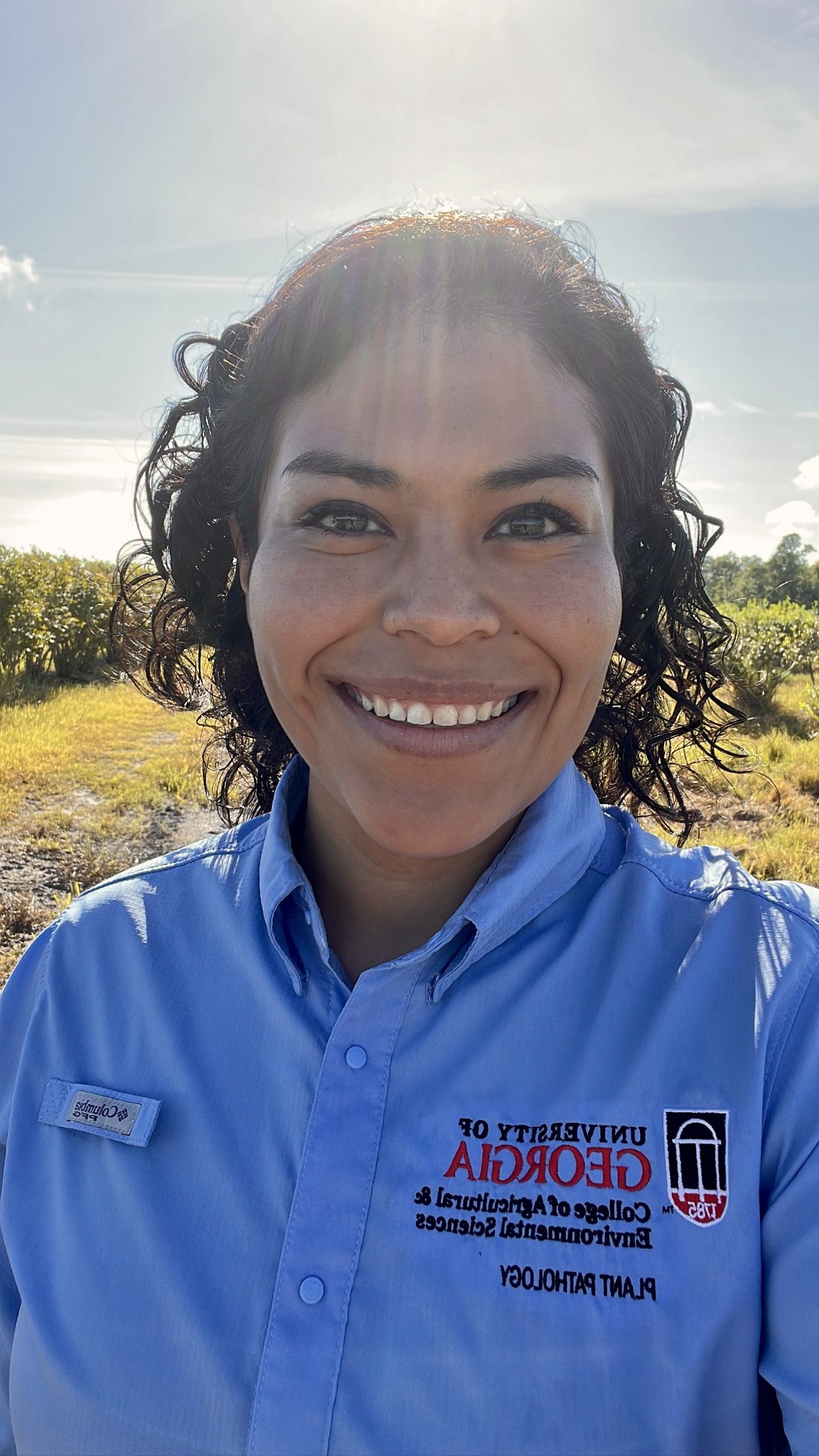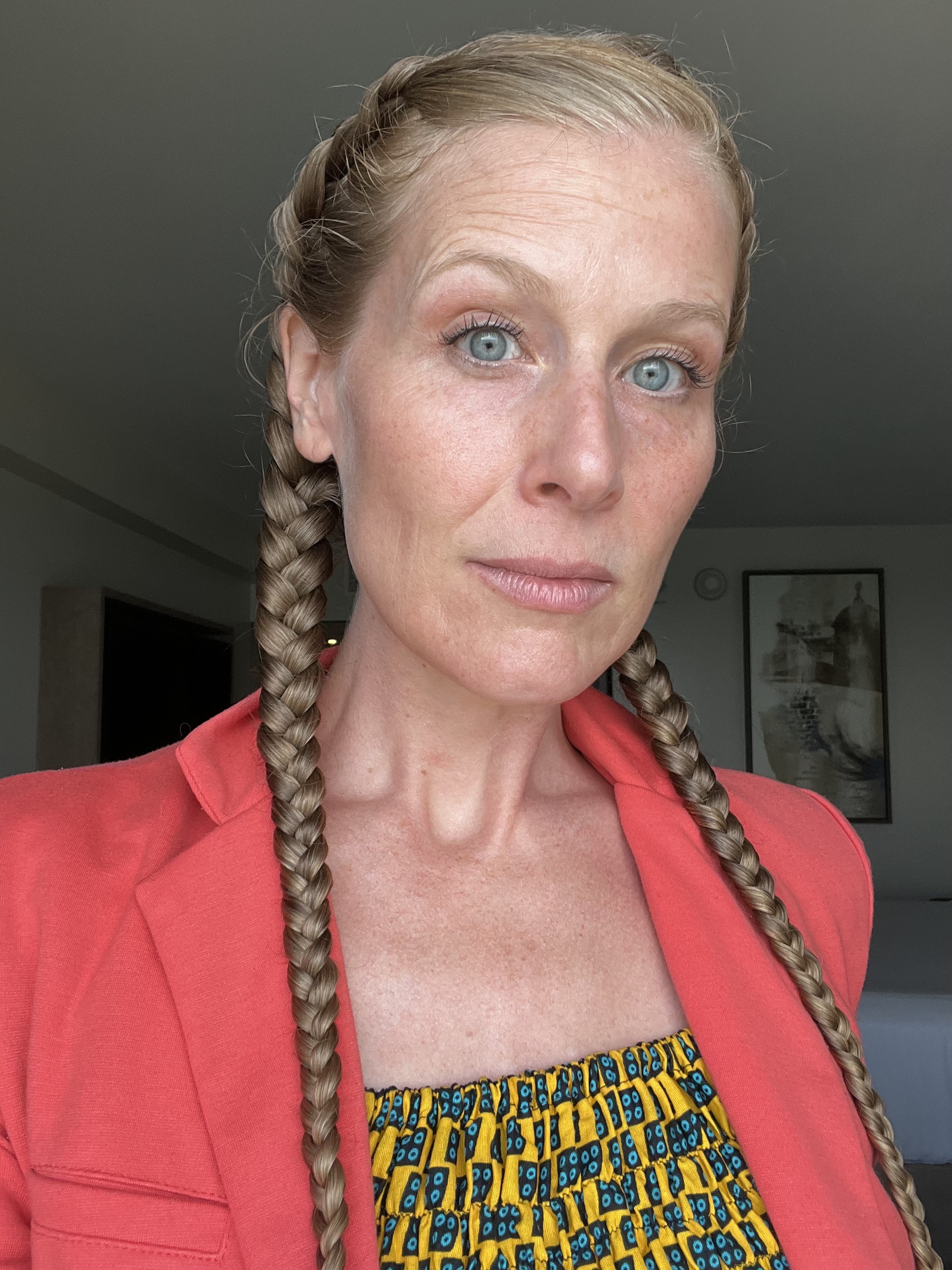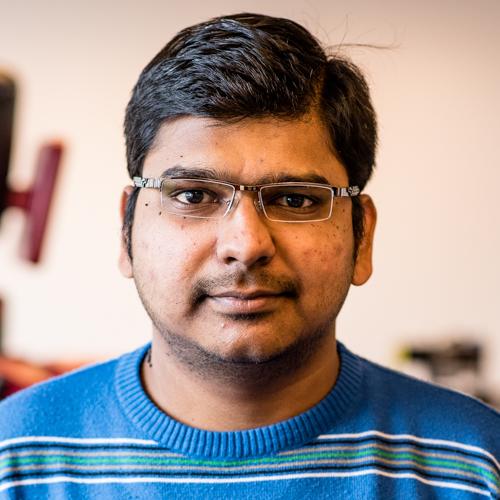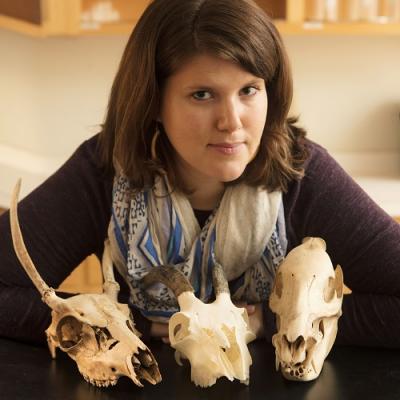2022 Open Science Fellows
Faculty
Graduate Students
Alejandro De Santiago

Alejandro De Santiago is a Ph.D. Candidate in the Institute of Bioinformatics Graduate Program at UGA. His current research interests are focused on developing computational workflows for analyzing metagenomic dataset from microbial metazoa. His main focus is uncovering the functional diversity of free-living marine nematodes and their microbiomes. He previously obtained his B.S. in Microbiology from the University of California – Riverside where he was an undergraduate researcher in the Bik Lab. His other interests include science education and making science accessible to the public. Additionally, he is currently an adjunct instructor for a CURE laboratory course in the Department of Biology at Morehouse College.
Brinkley Sharpe
Brinkley Sharpe (she/her) is a third-year graduate student in the Clinical Psychology PhD program at the University of Georgia under the supervision of Dr. Josh Miller. She is an advocate for a flexible (e.g., “registration continuum”; Benning et al., 2019), “bottom-up” approach to open science such that psychological scientists of all disciplines, theoretical orientations, career levels, and training histories feel empowered and motivated to increase transparency and reproducibility of their work. Brinkley is interested in meta-science and conducts substantive research in the area of personality pathology (especially antagonism and impulsivity). She is also actively involved in clinical work (with a focus on trauma-related disorders) and service (i.e., diversity committee, graduate student advocacy) at the program, department, and university level.
Laura Nasland

Laura Naslund is a PhD Candidate in Ecology at the University of Georgia. Her dissertation research examines the contribution of small dams and their reservoirs to greenhouse gas emissions from freshwaters. The ultimate aim of this research is to develop open access tools for managing aging dam infrastructure which can better integrate and harmonize climate and infrastructure goals. Her interest in open science began with a capstone research project at Duke University examining the facilitators and barriers of preprint commenting. Exposure to open science concepts and principles through this project motivated Laura to publish her senior thesis and all associated data open access. She continues to work to integrate open science principles into her research and looks forward to expanding this effort through the Open Science Fellowship.
Melinda Guzman

I'm a PhD student in the Department of Plant Pathology studying the pre-symptomatic detection of Xylella fastidiosa in southern highbush blueberry.
Taylor Ann Maddalene

Taylor Maddalene is a PhD Student in the Jambeck Research Group in the College of Engineering at the University of Georgia (UGA). She also serves as the Director of the Circularity Assessment Protocol at the Circularity Informatics Lab at UGA. Taylor received her Bachelors in Environmental Science from the University of Virginia and her Masters in Marine Biodiversity and Conservation from Scripps Institution of Oceanography at UC San Diego. Her background is in marine ecology, conservation, and science communication, working on projects around the globe with organizations such as National Geographic, NOAA, and Rare. Before starting her PhD, she served as the Director of the Plastics Initiative at National Geographic and organized their largest female-led expedition on the Ganges River to study plastic pollution. Her current research focuses on the impacts of plastic pollution on coastal ecosystem health and tying human behavior and waste management infrastructure on land with that we find in the ocean.
Faculty
Dr. Allison Skinner-Dorkenoo

Dr. Allison Skinner-Dorkenoo has been an assistant professor of psychology at the University of Georgia since the fall of 2019. Her research is focused on the societal factors that shape prejudice and racism, how our biases feedback to shape societal systems, and how those systems can be challenged. More specifically, she studies how situational cues in our social environments shape attitudes and behavior toward other individuals and groups. The situational cues that she investigates are subtle but powerful features of social contexts and interactions (e.g., nonverbal cues, microaggressions) that influence observers’ affective associations with others. To do this work she utilizes correlational and experimental approaches—and employs multiple methods. Dr. Skinner-Dorkenoo is a strong supporters of open science principles as she feels that they result in more replicable and reproducible science, but also directly improve her research by promoting more thoughtful consideration at each step of the research process.
Dr. Ramviyas Parasuraman

Dr. Ramviyas Parasuraman is an assistant professor in the School of Computing at the University of Georgia. He is also a faculty member of the Institute of Artificial Intelligence at UGA. He directs the Heterogeneous Robotics Research Lab (HeRoLab), which conducts cutting-edge research in heterogeneous multi-robot systems, networked autonomous vehicles, human-robot interfaces, search and rescue robotics, and machine learning applications to robotics and sensing. He is a senior IEEE member and was a recipient of the prestigious Marie Skłodowska Curie ESR fellowship at CERN, Switzerland. He conducted doctoral research at the European Organization for Nuclear Research (CERN), Switzerland, and obtained his Ph.D. from TU Madrid, Spain. Before joining the University of Georgia as an Assistant Professor in 2018, he has held postdoctoral researcher positions at Purdue University, USA and the KTH Royal Institute of Technology, Sweden. He has published over 40 research papers in top-tier journals and conferences, including IEEE Transactions on Cybernetics, Robotics and Autonomous Systems, NPG Asia Materials, IEEE Sensors, etc. He has served as the guest editor in the Technologies journal and associate editor of the International Conference on Robotics and Automation (ICRA) 2019.
Dr. Suzanne Pilaar Birch

I have a joint appointment in Geography and Anthropology and direct the Quaternary Isotope Paleoecology Lab. My research is focused on human adaptation and resilience to climate change and natural resource unpredictability in prehistory, and how our understanding of past human response to environmental change informs current thinking about these issues. I combine archaeology and biogeochemistry to investigate changes in diet, mobility, and settlement systems in the period spanning the end of the last ice age to the arrival of farming.
My other research interests include the initial domestication of livestock, diffusion of domesticates across Eurasia, the transition from hunting to herding, seasonality and human mobility, multispecies archaeology, and advancing methodologies in zooarchaeology and stable isotope analysis. I am an active advocate of open access publishing and online data and research sharing. I co-founded and moderate the blog TrowelBlazers, which highlights women in the fields of archaeology, paleontology, and geology. I am also an editor-in-chief of the open access journal for Quaternary science, Open Quaternary.